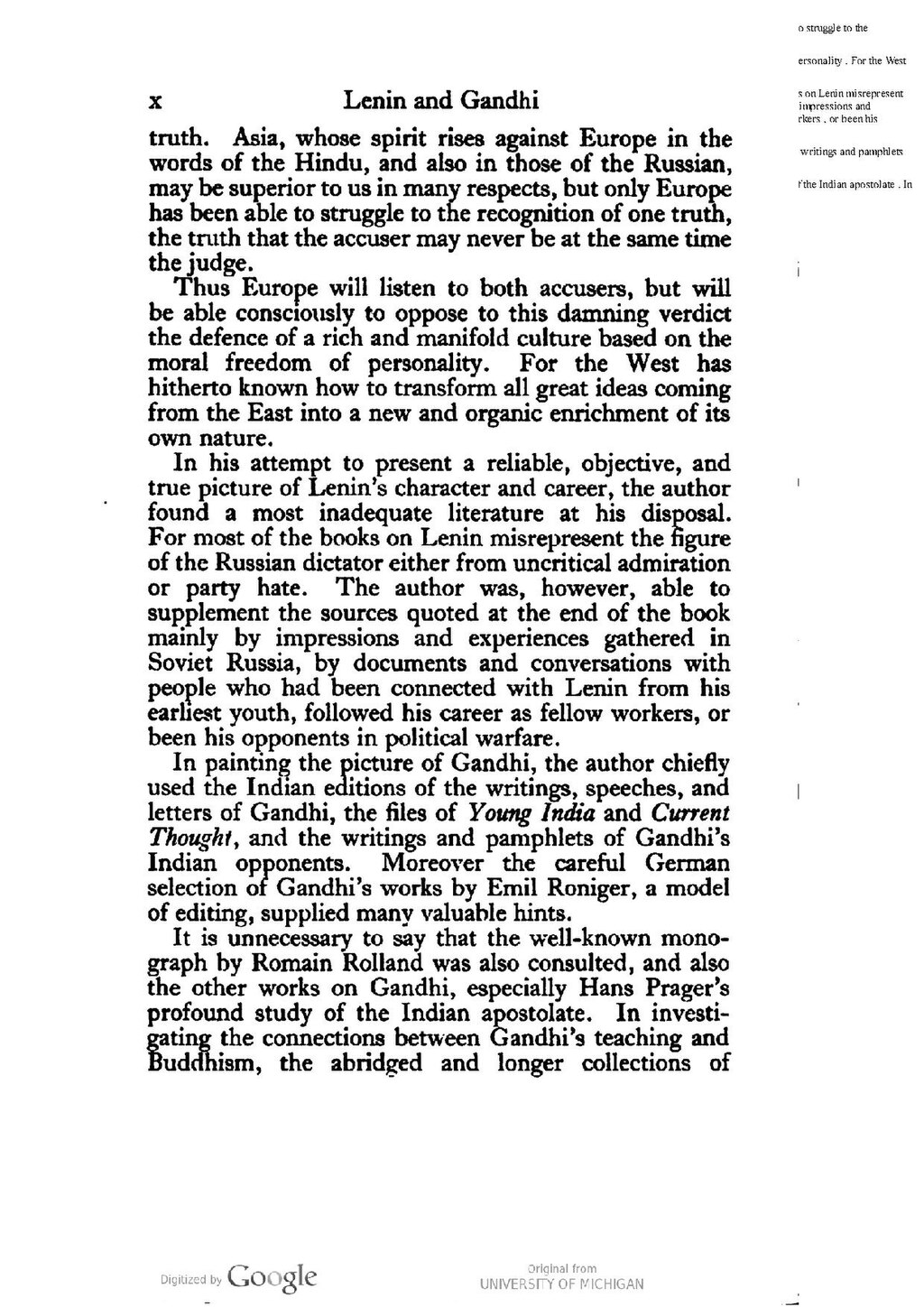truth. Asia, whose spirit rises against Europe in the words of the Hindu, and also in those of the Russian, may be superior to us in many respects, but only Europe has been able to struggle to the recognition of one truth, the truth that the accuser may never be at the same time the judge.
Thus Europe will listen to both accusers, but will be able consciously to oppose to this damning verdict the defence of a rich and manifold culture based on the moral freedom of personality. For the West has hitherto known how to transform all great ideas coming from the East into a new and organic enrichment of its own nature.
In his attempt to present a reliable, objective, and true picture of Lenin's character and career, the author found a most inadequate literature at his disposal. For most of the books on Lenin misrepresent the figure of the Russian dictator either from uncritical admiration or party hate. The author was, however, able to supplement the sources quoted at the end of the book mainly by impressions and experiences gathered in Soviet Russia, by documents and conversations with people who had been connected with Lenin from his earliest youth, followed his career as fellow workers, or been his opponents in political warfare.
In painting the picture of Gandhi, the author chiefly used the Indian editions of the writings, speeches, and letters of Gandhi, the files of Young India and Current Thought, and the writings and pamphlets of Gandhi's Indian opponents. Moreover the careful German selection of Gandhi's works by Emil Roniger, a model of editing, supplied many valuable hints.
It is unnecessary to say that the well-known monograph by Romain Rolland was also consulted, and also the other works on Gandhi, especially Hans Prager's profound study of the Indian apostolate. In investigating the connections between Gandhi's teaching and Buddhism, the abridged and longer collections of
